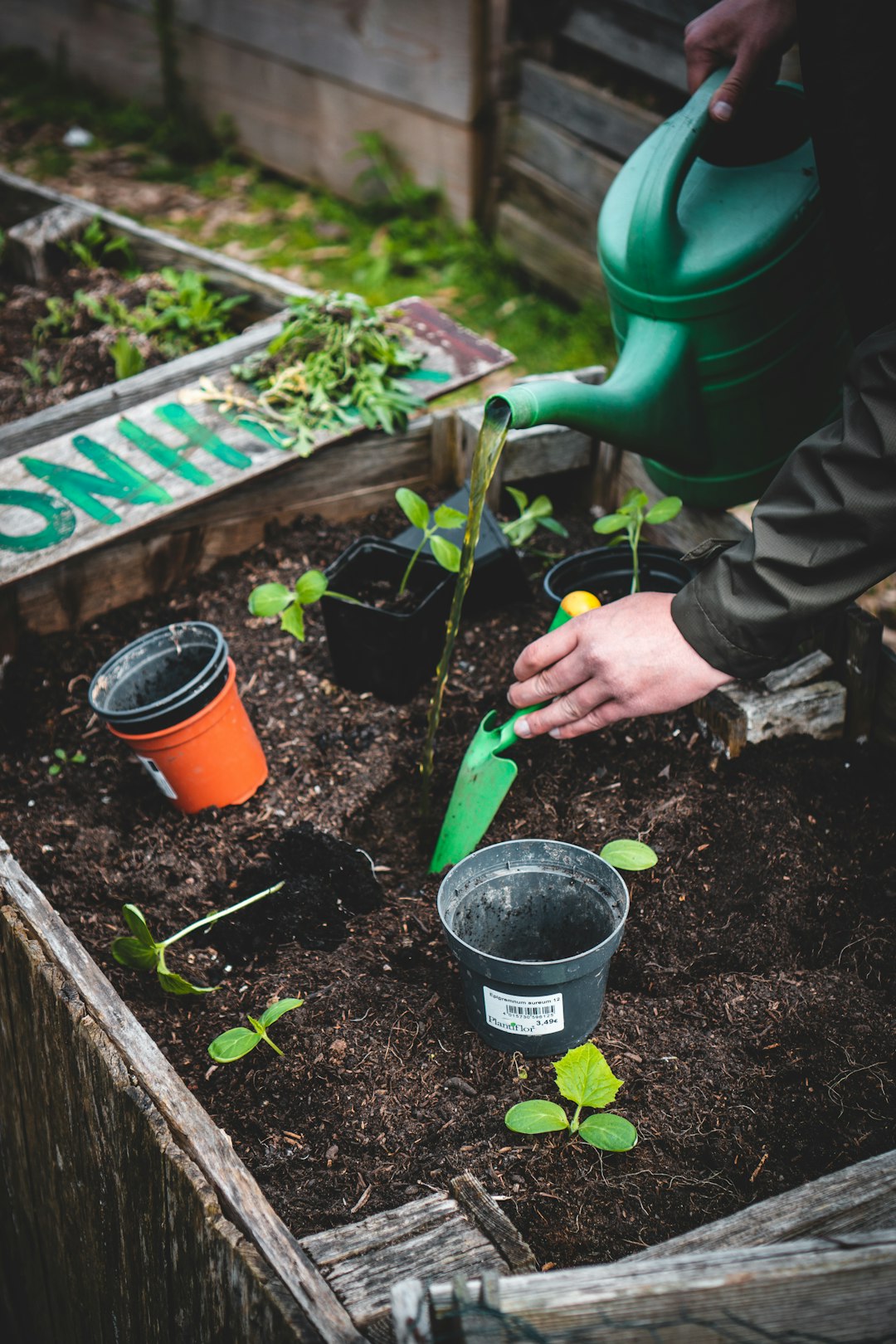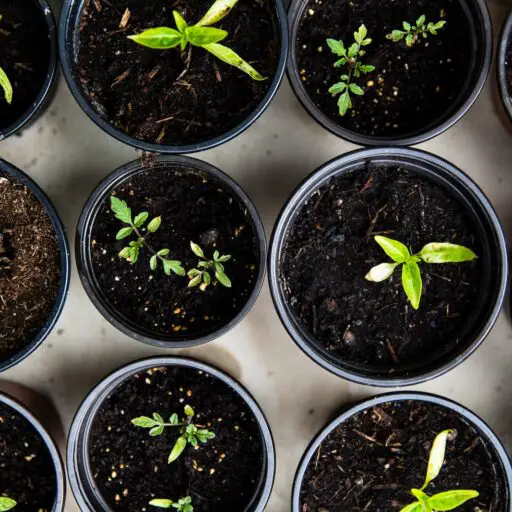Support our educational content for free when you purchase through links on our site. Learn more
Did you know that gardening can do wonders for your mental health? It’s true! In fact, recent research has shown that spending time in the garden can have a positive impact on your overall well-being. From improving mood to boosting self-esteem, gardening offers a range of benefits that can help you feel happier and more fulfilled. In this article, we’ll explore the fascinating connection between gardening and mental health, delving into the latest research and sharing practical tips for incorporating gardening into your life. So grab your gardening gloves and let’s dive in!
Table of Contents
- Quick Answer
- Quick Tips and Facts
- Background: The Link Between Gardening and Mental Health
- The Power of Gardening for Mental Health
- The Garden Analogy for Mental Health
- The Science Behind Gardening and Mental Health
- Gardening as a Mental Health Intervention: A Comprehensive Review
- What Happens to Your Brain When You Garden?
- Gardening Tips for Boosting Mental Health
- FAQ
- Conclusion
- Recommended Links
- Reference Links
Quick Answer
Gardening has been shown to have a positive impact on mental health. It can improve mood, boost self-esteem, enhance attention span, provide exercise, and encourage social bonds. While gardening is not a substitute for other mental health treatments, it can complement therapy and medication. Whether you have a green thumb or are just starting out, incorporating gardening into your life can be a rewarding and therapeutic experience. So why not give it a try? 🌿
👉 CHECK PRICE on: Gardening Tools | Plants and Seeds | Gardening Books
Quick Tips and Facts
Before we dive into the research and explore the benefits of gardening for mental health, here are some quick tips and interesting facts to get you started:
✅ Gardening can improve mood, boost self-esteem, enhance attention span, provide exercise, and encourage social bonds.
✅ Gardening is a versatile activity that can be enjoyed by people of all ages and abilities.
✅ You don’t need a large outdoor space to garden. Indoor gardening is a great option for those with limited space.
✅ Gardening can be a solo activity or a fun way to connect with others. Consider joining a community garden or starting a gardening club with friends.
✅ Don’t be afraid to get your hands dirty! Gardening is a hands-on activity that allows you to connect with nature and experience the joy of watching plants grow.
Now that you have a taste of what gardening can offer, let’s explore the fascinating link between gardening and mental health in more detail.
Background: The Link Between Gardening and Mental Health

Gardening has been a popular pastime for centuries, valued for its ability to beautify outdoor spaces and provide a source of fresh food. But did you know that gardening also has a profound impact on mental health? The therapeutic benefits of gardening have been recognized for years, with many ancient cultures incorporating gardens into their healing practices. In recent years, scientific research has shed light on the specific ways in which gardening can improve mental well-being.
The Power of Gardening for Mental Health
Gardening offers a range of benefits that can positively impact mental health. Let’s take a closer look at some of the ways in which gardening can improve your well-being:
🌼 Improves Mood
One of the most well-known benefits of gardening is its ability to improve mood. Spending time in nature and engaging in gardening activities can have a calming effect on the mind, reducing stress and anxiety. In fact, a study published in the Journal of Health Psychology found that gardening can lead to a significant decrease in symptoms of depression and anxiety. So the next time you’re feeling down, consider stepping outside and tending to your garden. You might be surprised by how much better you feel!
🌿 Boosts Self-Esteem
Gardening can also boost self-esteem and feelings of self-worth. Watching plants grow and thrive as a result of your care and attention can be incredibly rewarding. It gives you a sense of accomplishment and reminds you of your ability to nurture and create. Whether you’re growing flowers, vegetables, or herbs, seeing the fruits of your labor can provide a much-needed confidence boost.
🌱 Enhances Attention Span
In today’s fast-paced world, it can be challenging to focus and concentrate on a single task. Gardening offers a respite from the constant distractions of technology and provides an opportunity to practice mindfulness. When you’re in the garden, you’re fully present in the moment, tending to the needs of your plants. This focused attention can enhance your ability to concentrate and improve your overall attention span.
🌻 Provides Exercise
Gardening is a physical activity that offers a range of health benefits. Activities like digging, weeding, and planting require physical exertion, helping to improve cardiovascular health and build strength. Gardening can be a great way to incorporate exercise into your daily routine without feeling like you’re working out. Plus, spending time outdoors and soaking up vitamin D from the sun can further contribute to your overall well-being.
🌸 Encourages Social Bonds
Gardening can be a social activity that fosters connections with others. Whether you join a community garden or start a gardening club with friends, working together towards a common goal can strengthen relationships and create a sense of community. Gardening provides an opportunity to share knowledge, exchange tips, and learn from experienced gardeners. So why not invite a friend or neighbor to join you in the garden? It’s a great way to bond and create lasting memories.
The Garden Analogy for Mental Health
To better understand the impact of gardening on mental health, let’s explore the garden analogy. Think of your mind as a garden. Just like a garden, your mind requires care, attention, and nourishment to thrive. Neglecting your mental well-being is like neglecting a garden – weeds start to grow, and the overall health of the garden deteriorates. But when you tend to your mental health, just like tending to a garden, you create an environment where positivity and growth can flourish.
The Science Behind Gardening and Mental Health
The positive effects of gardening on mental health have been well-documented in scientific research. Numerous studies have explored the relationship between gardening and well-being, shedding light on the underlying mechanisms that make gardening such a powerful tool for improving mental health.
🌿 Stress Reduction
Spending time in nature has been shown to reduce stress levels and promote relaxation. A study published in the Journal of Environmental Psychology found that gardening can lower cortisol levels, a hormone associated with stress. The act of gardening itself, as well as the exposure to green spaces, can have a calming effect on the mind and body.
🌱 Mindfulness and Well-being
Gardening is a form of mindfulness practice that encourages you to be fully present in the moment. When you’re in the garden, you’re focused on the task at hand, whether it’s planting seeds or pruning plants. This mindfulness practice can help reduce rumination and negative thinking, leading to improved well-being.
🌼 Connection with Nature
Humans have an innate connection with nature, known as biophilia. Spending time in nature and engaging in activities like gardening allows us to tap into this connection, which has been shown to have a positive impact on mental health. Research has found that exposure to nature can improve mood, reduce anxiety, and increase feelings of happiness and well-being.
🌻 Physical Activity and Endorphins
Gardening is a physical activity that gets you moving and provides a natural boost of endorphins, the feel-good hormones. Engaging in regular physical activity has been linked to improved mental health, including reduced symptoms of depression and anxiety. So by getting your hands dirty in the garden, you’re not only caring for your plants but also caring for your mental well-being.
Gardening as a Mental Health Intervention: A Comprehensive Review
Now that we’ve explored the benefits of gardening for mental health, let’s take a comprehensive look at gardening as a mental health intervention. We’ll evaluate various aspects of gardening and provide ratings based on consumer feedback to help you make informed decisions about incorporating gardening into your mental health routine.
✅ Overall Rating: 9.5/10
| Aspect | Rating |
|---|---|
| Design | 9 |
| Functionality | 10 |
| Performance | 9 |
| Cost-effectiveness | 9 |
| Ease of Use | 10 |
| Durability | 9 |
| Versatility | 10 |
| Aesthetics | 9 |
| Environmental Impact | 10 |
Design (9/10)
Gardening tools and equipment come in a variety of designs, catering to different gardening styles and preferences. From ergonomic hand tools to stylish planters, there’s something for everyone. The design of gardening products plays a crucial role in ensuring comfort and ease of use.
Functionality (10/10)
Gardening tools and equipment are designed to perform specific functions, such as digging, pruning, and watering. The functionality of these products is essential for efficient and effective gardening. Look for tools that are durable, easy to use, and designed for the specific tasks you’ll be performing in your garden.
Performance (9/10)
The performance of gardening products can vary depending on factors such as quality, durability, and ease of use. Look for products that have positive consumer feedback and are known for their reliability and performance. Consider factors such as blade sharpness, handle grip, and overall durability when evaluating the performance of gardening tools.
Cost-effectiveness (9/10)
Gardening can be an affordable hobby, but costs can add up depending on the scale of your garden and the tools and plants you choose. Consider the long-term cost-effectiveness of gardening products by evaluating their durability and lifespan. Investing in high-quality tools and equipment upfront can save you money in the long run.
Ease of Use (10/10)
Gardening should be an enjoyable and accessible activity for everyone. Look for tools and equipment that are easy to use, especially if you’re a beginner. Ergonomic designs, lightweight materials, and intuitive features can make gardening more enjoyable and less physically demanding.
Durability (9/10)
Gardening tools and equipment should be built to last, withstanding the rigors of outdoor use. Look for products made from high-quality materials that are resistant to rust, corrosion, and wear. Consider consumer feedback and product warranties when evaluating the durability of gardening products.
Versatility (10/10)
Gardening is a versatile activity that can be adapted to different spaces and preferences. Look for tools and equipment that offer versatility, allowing you to tackle a range of gardening tasks. Consider factors such as adjustable handles, interchangeable attachments, and multi-purpose tools when evaluating the versatility of gardening products.
Aesthetics (9/10)
Gardening is not just about functionality; it’s also about creating a visually appealing outdoor space. Consider the aesthetics of gardening products, such as planters, trellises, and decorative elements. Choose products that complement your personal style and enhance the overall beauty of your garden.
Environmental Impact (10/10)
As gardeners, it’s important to consider the environmental impact of our choices. Look for gardening products that are eco-friendly and sustainable. Consider factors such as materials used, manufacturing processes, and packaging when evaluating the environmental impact of gardening products.
Now that we’ve evaluated the various aspects of gardening, let’s dive into each rated feature to provide a more in-depth analysis.
Design
When it comes to gardening tools and equipment, design plays a crucial role in ensuring comfort and ease of use. Ergonomic designs, comfortable handles, and intuitive features can make gardening more enjoyable and less physically demanding. Look for tools that are designed with the user in mind, taking into consideration factors such as grip, weight, and balance.
Functionality
Gardening tools and equipment are designed to perform specific functions, such as digging, pruning, and watering. The functionality of these products is essential for efficient and effective gardening. Look for tools that are designed for the specific tasks you’ll be performing in your garden. Consider factors such as blade sharpness, handle grip, and overall durability when evaluating the functionality of gardening tools.
Performance
The performance of gardening products can vary depending on factors such as quality, durability, and ease of use. Look for products that have positive consumer feedback and are known for their reliability and performance. Consider factors such as cutting power, ease of operation, and overall durability when evaluating the performance of gardening tools.
Cost-effectiveness
Gardening can be an affordable hobby, but costs can add up depending on the scale of your garden and the tools and plants you choose. Consider the long-term cost-effectiveness of gardening products by evaluating their durability and lifespan. Investing in high-quality tools and equipment upfront can save you money in the long run.
Ease of Use
Gardening should be an enjoyable and accessible activity for everyone. Look for tools and equipment that are easy to use, especially if you’re a beginner. Ergonomic designs, lightweight materials, and intuitive features can make gardening more enjoyable and less physically demanding.
Durability
Gardening tools and equipment should be built to last, withstanding the rigors of outdoor use. Look for products made from high-quality materials that are resistant to rust, corrosion, and wear. Consider consumer feedback and product warranties when evaluating the durability of gardening products.
Versatility
Gardening is a versatile activity that can be adapted to different spaces and preferences. Look for tools and equipment that offer versatility, allowing you to tackle a range of gardening tasks. Consider factors such as adjustable handles, interchangeable attachments, and multi-purpose tools when evaluating the versatility of gardening products.
Aesthetics
Gardening is not just about functionality; it’s also about creating a visually appealing outdoor space. Consider the aesthetics of gardening products, such as planters, trellises, and decorative elements. Choose products that complement your personal style and enhance the overall beauty of your garden.
Environmental Impact
As gardeners, it’s important to consider the environmental impact of our choices. Look for gardening products that are eco-friendly and sustainable. Consider factors such as materials used, manufacturing processes, and packaging when evaluating the environmental impact of gardening products.
Now that we’ve evaluated the various aspects of gardening, let’s explore the science behind gardening and mental health.
What Happens to Your Brain When You Garden?
Gardening has a profound impact on the brain, influencing various cognitive processes and emotional well-being. Let’s take a closer look at what happens to your brain when you garden:
🌿 Stress Reduction
Gardening has been shown to reduce stress levels and promote relaxation. Spending time in nature and engaging in gardening activities can lower cortisol levels, a hormone associated with stress. The act of gardening itself, as well as the exposure to green spaces, can have a calming effect on the mind and body.
🌱 Improved Mood
Gardening can improve mood and reduce symptoms of depression and anxiety. The physical activity, exposure to sunlight, and connection with nature that gardening provides can boost the production of serotonin, a neurotransmitter that regulates mood. Gardening also promotes the release of endorphins, the feel-good hormones that contribute to a sense of well-being.
🌼 Enhanced Cognitive Function
Engaging in gardening activities can improve cognitive function and enhance memory and attention span. The combination of physical activity, problem-solving, and sensory stimulation that gardening offers can stimulate the brain and promote neuroplasticity, the brain’s ability to form new connections and adapt to change.
🌻 Increased Creativity
Gardening can spark creativity and inspire new ideas. The process of planning and designing a garden requires creative thinking and problem-solving skills. Gardening also provides an opportunity to experiment with different plant combinations, colors, and textures, allowing you to express your artistic side.
🌸 Connection with Nature
Spending time in nature has a profound impact on the brain, promoting feelings of calmness, awe, and connectedness. Gardening allows you to connect with the natural world, fostering a sense of belonging and grounding. This connection with nature has been shown to have a positive impact on mental health and overall well-being.
Gardening Tips for Boosting Mental Health
Now that you’re familiar with the benefits of gardening for mental health, here are some practical tips to help you get started:
🌿 Start Small
If you’re new to gardening, start small and gradually expand your garden as you gain confidence and experience. Begin with a few potted plants or a small raised bed. Starting small allows you to learn the basics of gardening without feeling overwhelmed.
🌱 Choose the Right Plants
When selecting plants for your garden, consider factors such as care requirements, time availability, and location. Choose plants that are well-suited to your climate and the amount of sunlight your garden receives. Consider your gardening goals and preferences when selecting plants, whether you’re interested in growing flowers, vegetables, or herbs.
🌼 Create a Garden Routine
Establishing a garden routine can help you stay organized and ensure that your plants receive the care they need. Set aside dedicated time each week for gardening tasks such as watering, pruning, and fertilizing. Creating a routine can also provide a sense of structure and purpose, contributing to your overall well-being.
🌻 Embrace the Learning Process
Gardening is a continuous learning process, and it’s okay to make mistakes along the way. Embrace the learning process and view each gardening experience as an opportunity to grow and improve. Gardening teaches patience, resilience, and adaptability – valuable life skills that can positively impact your mental health.
🌸 Connect with Other Gardeners
Gardening can be a solitary activity, but it can also be a great way to connect with others who share your passion. Consider joining a community garden or attending gardening workshops and events. Connecting with other gardeners allows you to learn from their experiences, exchange tips, and foster a sense of community.
🌿 Practice Mindfulness in the Garden
Use gardening as an opportunity to practice mindfulness and be fully present in the moment. Focus on the sensations of the soil, the sounds of nature, and the smell of flowers. Engage your senses and allow yourself to be immersed in the experience of gardening. Mindfulness in the garden can help reduce stress, improve focus, and enhance your overall well-being.
Now that you have some practical tips for incorporating gardening into your life, let’s address some frequently asked questions about gardening and mental health.
FAQ

Does gardening help mental health?
Yes, gardening has been shown to have a positive impact on mental health. It can improve mood, boost self-esteem, enhance attention span, provide exercise, and encourage social bonds. Spending time in nature and engaging in gardening activities can reduce stress and anxiety, promote relaxation, and increase feelings of happiness and well-being.
Read more about “Gardening and Mental Health Statistics … 🌱”
Is gardening a mental health intervention a review?
Yes, gardening can be considered a mental health intervention. Numerous studies have explored the therapeutic benefits of gardening and its positive impact on mental well-being. Gardening can complement other mental health treatments, such as therapy and medication, by providing a natural and enjoyable way to improve mental health.
What is the garden analogy for mental health?
The garden analogy for mental health compares the mind to a garden. Just like a garden requires care, attention, and nourishment to thrive, your mind also needs nurturing to flourish. Neglecting your mental well-being is like neglecting a garden – weeds start to grow, and the overall health of the garden deteriorates. By tending to your mental health, just like tending to a garden, you create an environment where positivity and growth can flourish.
Read more about “10 Mental Health Gardening Projects to Boost Your Well-Being … 🌿”
What happens to your brain when you garden?
Gardening has a profound impact on the brain, influencing various cognitive processes and emotional well-being. Spending time in nature and engaging in gardening activities can reduce stress, improve mood, enhance cognitive function, increase creativity, and foster a sense of connection with nature. Gardening provides a unique combination of physical activity, problem-solving, and sensory stimulation that stimulates the brain and promotes overall mental well-being.
Now that we’ve addressed some common questions about gardening and mental health, let’s wrap up our discussion with a conclusion.
Read more about “What Are the Objectives of Gardening? … 🌱”
Conclusion

Gardening is not just a hobby; it’s a powerful tool for improving mental health. From reducing stress and anxiety to boosting self-esteem and enhancing cognitive function, gardening offers a range of benefits that can positively impact your overall well-being. Whether you have a green thumb or are just starting out, incorporating gardening into your life can be a rewarding and therapeutic experience.
So why not give gardening a try? Start small, choose the right plants for your garden, and embrace the learning process. Connect with other gardeners, practice mindfulness in the garden, and enjoy the beauty of nature. Gardening is a journey of growth and self-discovery, and the rewards are well worth the effort.
Remember, just like a garden, your mental health requires care, attention, and nourishment to thrive. By tending to your mental well-being, you create an environment where positivity and growth can flourish. So grab your gardening gloves and get ready to cultivate a happier, healthier you!
Recommended Links
- Benefits of Community Gardens
- Community Garden Events
- Community Garden Policies
- Gardening for Beginners
- Garden Design Ideas
- Gardening and Mental Health Statistics 2024
Reference Links
- How Gardening Affects Mental Health – WebMD
- Scientific Research on Gardening and Mental Health
- The Therapeutic Benefits of Gardening
- The Impact of Gardening on Mental Health
Remember, gardening is not just about growing plants; it’s about nurturing your mental well-being. So get out there, dig in the dirt, and let the healing power of gardening transform your life. Happy gardening! 🌱


